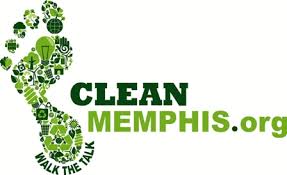From Governing:
Few people see government as “fun,” especially during tax-filing season. But governments–especially local governments–do sponsor plenty of fun for their citizens, providing venues ranging from sports stadiums to recreation centers to parks, libraries and continuing-education classes.
How can local governments extend that spirit of fun to other, more serious arenas important to the vibrancy of local communities, such as clean streets, a carbon-neutral environment, healthy citizens or economic security?
Nicole Lazzaro thinks video games may be one answer. Lazzaro is a game designer whose California-based firm specializes in helping organizations increase engagement. “Although games can be seen as a distraction and a waste of time,” she says, “inspiration from game-design thinking provides an opportunity to improve the way public services are designed, approved, offered and used.” Moreover, she says, games “are self-motivating systems” that can tap into human emotions more effectively than, say, a public hearing.
Games certainly outrank public hearings in popularity. As the Wall Street Journal reports, people have spent more than 50 billion hours playing the popular online game “World of Warcraft.” What if that level of energy and attention were invested in addressing local challenges?
Some local governments have pioneered the use of gaming for citizen engagement. Manor, Texas, for example, has used an online-game approach to let citizens submit ideas for improving city services. The residents earned points that could be used in the town’s online store for prizes that could even include the opportunity to be mayor for a day.
Some games are national, such as iCivics’ game Win the White House, which teaches about the electoral process. Others, such as Civilization, are used by schoolteachers as an alternative way of teaching history.
Some video games could be adapted to help communities meet local goals. For example, inspiring healthy lifestyles might be “gamified” by creating competitions between neighborhoods. First lady Michelle Obama’s Let’s Move campaign to end childhood obesity has sponsored a contest, Apps for Healthy Kids, via the Department of Agriculture. The resulting apps–such as Pick Chow, Food Buster and Work It Off–could be adopted by communities that want to reduce childhood obesity, helping them to connect neighborhoods with similar health goals.
Communities that have other goals–reducing energy use, promoting clean streets, reducing traffic congestion or increasing retirement savings, for example–could adapt game-design techniques that could supplement traditional governmental policy approaches such as regulation, inspections and fines. In fact, a network of game designers has created Games for Change, a website that addresses national and local challenges such as obesity, education and climate change.
Lazzaro says neighborhoods could compete with each other in a multi-player energy-saving game to encourage behavior change across a community. Such a game could reward conservation and show the financial effects of energy-saving upgrades or award points for reducing energy usage of appliances that are not in use. A climate-change-awareness game in Vermont pits individual towns against each other to win a Ben and Jerry’s ice cream party.
Other social games could include waste-collection contests, measuring the amount of recycling being done by various neighborhoods, or reduction of carbon emissions through carpooling. In fact, a carpooling game exists: the Drive Less Challenge, in which players earn credits and see progress on a dashboard.
The value of gamifying public issues, says Lazzaro, “is the ability to motivate action.” After all, isn’t that the goal of public service?



